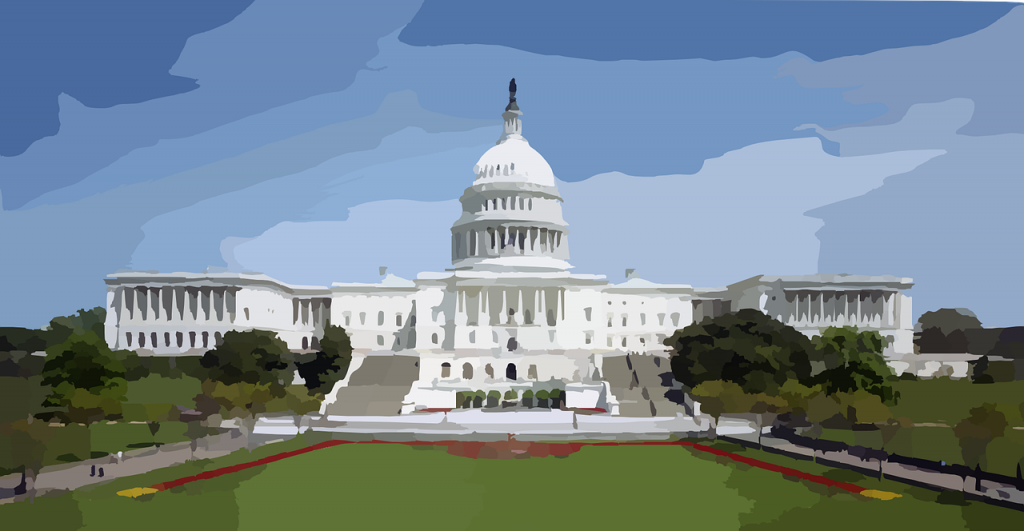
Congress Working on PPP – Other NAIFA Issues in the Works, Including Health Insurance and Retirement Savings
by Dani Kehoe, Counsel to NAIFA
The House of Representatives passed a bill, H.R.7100, that modifies the Paycheck Protection Program (PPP) to extend the program and to make PPP loan forgiveness easier for borrowers. And Sen. Mitch McConnell (R-KY), the Senate’s Majority Leader, said the Senate could be ready to make decisions on a new coronavirus crisis response bill “within about a month.” So, the legislative pace has slowed, but the effort continues. Details, as we know them as of now, are below.
Paycheck Protection Program (PPP): On May 28, the House passed—by a huge 417 to 1 vote—H.R.7100, a bill that changes some PPP rules. The changes include:
- · A provision that establishes that five years will be the minimum PPP loan term (currently, PPP regs set the loan term at two years; the statute allows for a term of up to 10 years)
- · Extension of the “covered period” from June 30, 2020, to December 31, 2020, for a period of 24 (rather than eight) weeks
- · Provisions to ease the requirements regarding maintaining the number (and pay levels) of employees as of February 15, 2020—the new rules allow loan forgiveness if an employer is “unable to rehire an individual” who was employed on or before 2/15/2020, or can demonstrate inability to hire similarly qualified employees on or before 12/31/2020, or can show that the business is unable to return to the same level of business activity as existed on 2/15/2020
- · Modification of the regulatory rule that at least 75 percent of a forgivable PPP loan must be spent on payroll—as originally drafted, the bill would have eliminated the rule altogether, but opposition from organized Labor caused a decision to change the rule to a 60/40 rule instead. So, under the rule in the “Paycheck Protection Program Flexibility Act,” at least 60 percent of forgivable PPP loan proceeds must go towards payroll costs.
- · A provision that makes PPP borrowers eligible for the CARES Act’s payroll tax deferral provisions
Interestingly, the bill does not overturn a Treasury decision that business expenses paid with forgiven PPP loan money will not be deductible. That rule is overturned in the House-passed Heroes Act and could well be in play as lawmakers and the Administration hammer out the next coronavirus crisis response bill over the next couple of months.
The changes would take effect retroactively, as if they were part of the original CARES Act which was signed into law on March 27, 2020.
NAIFA Issues: Negotiations—which very likely will be at the Congressional-White House leadership level—have not yet begun on the next coronavirus crisis response bill. But when they do, many of NAIFA’s top issues will be in play. They include health insurance help for the uninsured, possibly some retirement savings issues (especially funding for defined benefit (DB) plans), and potential changes to life insurance tax law that would modify the definition of life insurance (section 7702) to allow use of a market-based interest rate to calculate the maximum allowable premium payment and a recharacterization of insurer-held bonds as ordinary rather than capital assets. There’s a closer look at each of these issues below.
Health Insurance: Health insurance issues—including subsidies for the unemployed and flexibility for those who have flexible spending arrangements (FSAs)—are high on the priority list for negotiators, but these issues do not yet seem to be the subject of back-room discussions—but they surely will be as negotiations get underway “for real” in the upcoming couple of weeks.
Plus, the White House has begun floating the idea of adding a surprise billing fix to the legislation. Administration personnel are discussing the possibility of a ban on billing patients (in surprise billing situations) for out-of-network charges, leaving unresolved whether insurers, employers, or medical care providers absorb those costs. While most lawmakers agree that patients should be shielded from surprise medical bills, the unresolved issue of who pays those costs remains of considerable concern. This issue may or may not be resolved in the upcoming coronavirus crisis response bill.
Retirement Savings: There’s considerable focus on defined benefit (DB) plan funding issues in behind the scenes talks, especially at the staff level. But like the health insurance issues, these issues have not yet risen to the top of the negotiators’ agenda. But it does look like they will, probably by next month. In the meantime, Treasury and the IRS have announced a delay in the filing/funding deadlines for DB plans—to July 15. This action has added some steam to the DB issues that Congress is considering. And there will be continued efforts to resolve the problem of bankrupt/near-bankrupt labor union pension plans (the “multi’s issue”).
Life Insurance Tax: The Joint Committee on Tax (JCT) and the Congressional Budget Office (CBO) have released updated scores for the House-passed Heroes Act. JCT and CBO project that the DB plan funding relief provisions would raise about $17 billion over ten years, while the section 7702 life insurance tax issues would lose around $3.3 billion. Since the recharacterization of bonds held by insurers issue was not included in the Heroes Act, that provision was not scored. Early indications are that there is not going to be much if any, political impact from the revenue projections of the provisions in Division D (the Heroes Act “home” of these provisions).
Business Liability Protection: For Republicans, the need to provide liability protection for businesses that are reopening within government guidelines remains the top priority. Democrats are pretty much silent on the issue, although most will concede, at least in private, that such protection would be ok with them, so long as the protections are carefully tailored. As with most legislation, the devil will be in the details, and there is as yet no formal proposal. But this will be a key agenda item in the upcoming negotiations.
Unemployment Benefits: A key issue in the upcoming coronavirus crisis response bill will be how to deal with the CARES Act’s “incentive to not work”—a byproduct of the fact that the extra $600/week, paid by the federal government, means many lower-income workers get more money from not working than they do from returning to work. There are more and more reports of laid-off employees declining call-backs to work due to this situation, and as a result, more and more lobbying to fix it. As of now, there’s an emerging Republican proposal to address this situation by letting workers who are collecting the extra $600/week keep $450/week of that money even after they return to work. The Heroes Act, as you no doubt recall, simply extends the $600/week benefit, without changing it. This will be a “headline-level” issue as the next bill comes together.
Other Issues: There are other, unrelated to NAIFA, issues that will shape the negotiations—including if/how to aid States and local governments slammed by the costs of the coronavirus crisis. There are also issues that are more political than most—e.g., whether to give money to the states to fashion remote-voting systems ahead of the November elections, when and how to help the Post Office (which says it will have to shut down by the end of the year if it doesn’t get financial help from the federal government), and others. These issues will heavily influence what kind of bill lawmakers (with a whole lot of input from the Administration) put together in the next four to six weeks.
Prospects: Hill folks continue to believe that there will be a bill enacted into law later this summer. Most people see late June/early July as the most likely time frame. We’ll keep you posted as the issues unfold.



